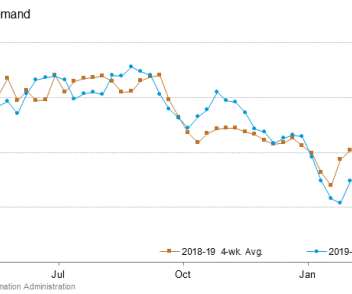IHS Markit: US gasoline demand could be cut almost in half due to COVID-19
Green Car Congress
MARCH 27, 2020
The magnitude of gasoline demand decline will be much greater than the impact of the 2008 recession and could be further protracted depending on how effective social distancing measures are at controlling the spread of the COVID-19 virus. during the global recession in 2008/2009. million units. million units, down by at least 15.3%



























Let's personalize your content